Critical Reflections on Nelson Chamisa’s leadership style and approach
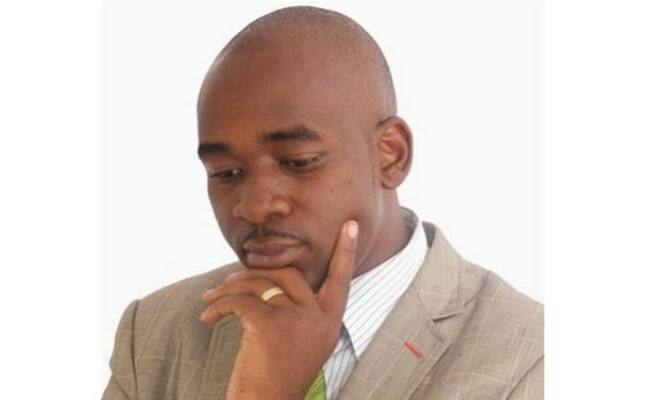
CCC leader Nelson Chamisa
By Justice Alfred Mavedzenge
The pro-democracy movement in Zimbabwe is trapped between a rock and a hard surface. The rock is the repressive ZANU PF regime who continue to use violence, intimidation and weaponize the legal and security system to punish and persecute legitimate political dissenters. The hard surface is the populistic, autocratic and weak leadership of Nelson Chamisa, as demonstrated by the manner in which he is running the main opposition party- Citizen Coalition for Change (CCC).
Many of us have thoroughly and consistently scrutinized ZANU PF’s autocratic rule and we must continue to do so as a way of holding the government of the day accountable. However, we must admit that we have (to some extent) abdicated from openly and objectively scrutinizing the manner in which Nelson Chamisa is managing the CCC. The manner in which Nelson Chamisa manages the CCC is a matter of public concern and public interest, which we cannot afford to ignore as scholars and citizens. There are two fundamental reasons for this.
First is that the CCC and Nelson Chamisa are the main opposition and a potential government in waiting. If we are to build a genuinely democratic society, we must be courageous enough to subject the CCC and Nelson Chamisa to democratic accountability now, so that they get accustomed to a culture of democratic accountability before they are in government. Secondly, scrutinizing and subjecting the CCC and Nelson Chamisa to democratic accountability will strengthen them as party or a movement and ensure that Zimbabwe has a strong opposition. No democracy can survive without a strong and vibrant democratic opposition. It is from this premise that I offer this installment. I can only hope that the CCC and its leader, my brother in Christ Nelson Chamisa will treat and receive this as advice from a Zimbabwean who is passionate about building genuine democracy. I also hope that my colleagues in the academia and other public intellectuals will react to this installment by publishing their joinders and replies to contest (rather than just agree with) the views I express in this installment. Our prospects for a democratic society can only be enriched as a result of such robust contestation of ideas.

Chamisa and the contextual realities of the Zimbabwean political environment
Before I offer a critique of my dear brother Nelson Chamisa, it is important to state certain realities which constitute the context within which the CCC exists. I believe that my brother Nelson Chamisa is both a product and a victim of some of these contextual realities. It is impossible to understand and critique him without looking at the context which has both formed and victimized him, politically.
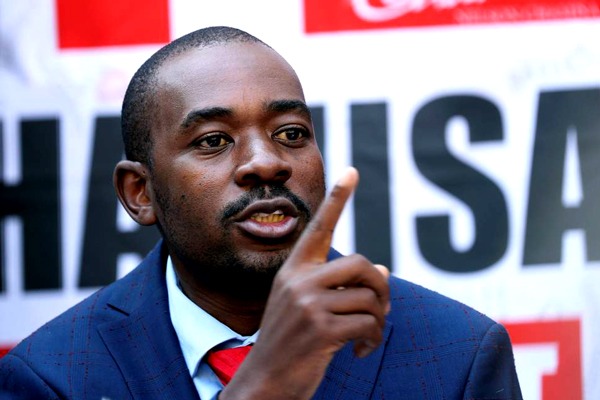
First is that Zimbabwe is a two-party state, as has been rightly observed by other scholars, including my friend Philani Zamchiya. At any given moment in the history of elections, the country has been dominated by two parties. Since the early 2000s, the county’s electoral politics has been dominated by ZANU PF and MDC. Currently, it is dominated by ZANU PF and CCC. Outside of these two parties, it has proven quite difficult for any person to gain political traction. Out of fear of being pushed into political obscurity, many inside ZANU PF and CCC tend to avoid being critical of the leaders of their respective political parties. The existence of a two-party system in Zimbabwe has created a situation where party leaders, including opposition leaders end up operating as demi-gods under whose wings everyone is desperate to congregate, because there seems to be no political life outside of these two parties.
The second reality is that currently, the conditions for a free and fair election do not exist in Zimbabwe and it is highly unlikely that there will be any substantial positive reforms which will be undertaken to improve these conditions ahead of the 2023 elections. Under the ZANU PF (mis)rule, government corruption and economic mismanagement is rife and has resulted in a debilitating socio-economic crisis. This tragic state of affairs is taken advantage of by the opposition to deflect attention and public scrutiny of their internal processes and election strategies. Whenever one criticizes the opposition for its internal weaknesses, their reaction is to quickly remind those criticizing them that the problem is not the opposition but is ZANU PF misrule. “People must always remember that the CCC is a solution to the problem. We are not the problem. The problem is ZANU PF and citizens must not allow to be distracted from that”: This has become a common statement uttered by CCC leaders and their associates whenever the CCC is called to account for its own blunders, own goals and shortcomings. This is a strategy of diversion and deflection, carefully employed to hide from being held accountable for the own goals which the party so frequently scores. This culture did not start with the current crop of CCC functionaries. They may have perfected it, but this culture can be traced back to ZANU PF. Whenever they are called to account for the socio-economic crisis, ZANU PF politicians blame sanctions and everyone else but will never accept responsibility for their part. Similarly, the opposition is not prepared to accept that whilst ZANU PF’s autocratic rule is a serious problem, it is not the only problem. The manner in which the opposition mismanages its internal processes is also a serious problem which, if left unaddressed further weakens their capacity to survive and challenge ZANU PF’s autocratic rule.
The third reality is that generally, as Zimbabweans, we are not tolerant of divergent views, including on politics. Whenever one expresses a divergent view, that person is targeted for harassment including through vicious cyber bullying. This culture of intolerance may be a result of living under a repressive political regime for more than 42 years. As a result, many amongst us may have now begun (subconsciously) to mimic the intolerance of those who have been suppressing us for the past 42 years. The culture of intolerance may also be a result of desperation for political change, which causes people not to be receptive to any views that challenge the dominant thinking, or which exposes the weaknesses of “their best foot forward” in the quest for political change. This phenomenon is not new. There is a story in the Book of Jeremiah similar to our situation. When faced with an invasion by the Babylonians, the only message which the Israelites wanted to hear were prophecies which confirmed that God would give them victory over the Babylonians. They were not prepared to hear anything different. When Jeremiah, the real Prophet of God, was sent with the word from God to tell them that they were surely going to be conquered by the Babylonians because of their sinful nature and disobedience to God, they arrested and even attempted to kill Jeremiah. He was called all sorts of names, including being labeled a traitor. Similarly, this is how generally Zimbabweans from across the political divide treat those who critique their political leaders. There is a serious lack of a democratic culture, not just amongst those in government but the general population too.

The fourth reality is that Zimbabweans generally are attracted to political leaders who maintain a messianic outlook. Since colonialism, a significant part of the population has been trapped in a perpetual search for a political messiah. They seem to be searching for someone to “save” them rather than to “serve” them. This is why in ZANU PF they refer to their leaders as “chefs”- a terminology which at some point had also creeped into the MDC circles. When Robert Mugabe took over and led the country into independence, he was generally perceived as the messiah who had come to save and redeem Zimbabwe from the shackles of British colonialism. For this reason, the majority of the population were not prepared to hear of Mugabe’s evil Gukurahundi massacres in Matebeleland and Midlands provinces. Their messiah could not do any wrong! They only realised much later that “their messiah” was now the albatross hanging around their necks. By that time, Mugabe had completely captured all the organs of the ZANU PF party and institutions of the State. When Morgan Tsvangirai rose to fame in the early 2000s as the leader of the then opposition MDC, he was largely perceived as the Moses who had been sent to rescue the country and lead it to its promised land of Canaan. Various songs were composed by artists to assert and reinforce this perception. Many were not prepared to entertain any views which critiqued Morgan Tsvangirai’s style of leadership. When Nelson Chamisa took over the MDC reigns in 2018, he was (and still) is perceived as “the Joshua of our time”, who is taking over from Moses to lead the people to the promised democratic society.

Interestingly, Emmerson Mnangagwa is perceived the same way by his supporters, after taking over from Mugabe in 2017. These perceptions shape the extent to which the people are prepared to be honest in the way they engage with their political leaders. To some extent, these perceptions also nudge and encourage political leaders to behave as demi-gods. In both ZANU PF and CCC, there is always a legion of politicians who are eagerly waiting to worship the ground that Emmerson Mnangagwa and Nelson Chamisa walk on.
The problematic nature of Chamisa’s leadership style
It is in this context that Nelson Chamisa has emerged as the main opposition leader, enjoying support from across the country and across generations. His populistic and autocratic style of leadership is shaped and encouraged by these contextual realities namely: the enormous power he enjoys over his colleagues as a result of the two-party state, intolerance and the lack of a democratic culture amongst the general population, and the electorate’s affinity for messianic politicians and individual centered politics.
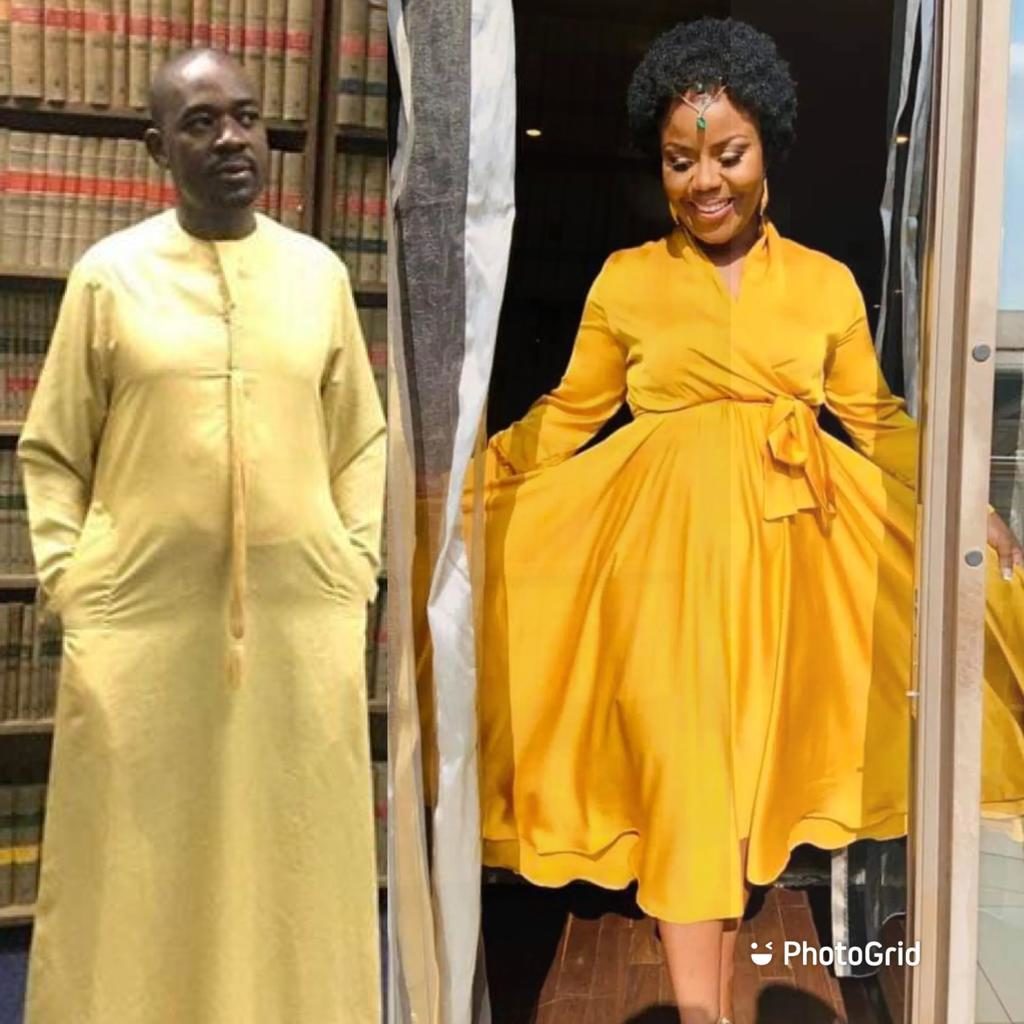
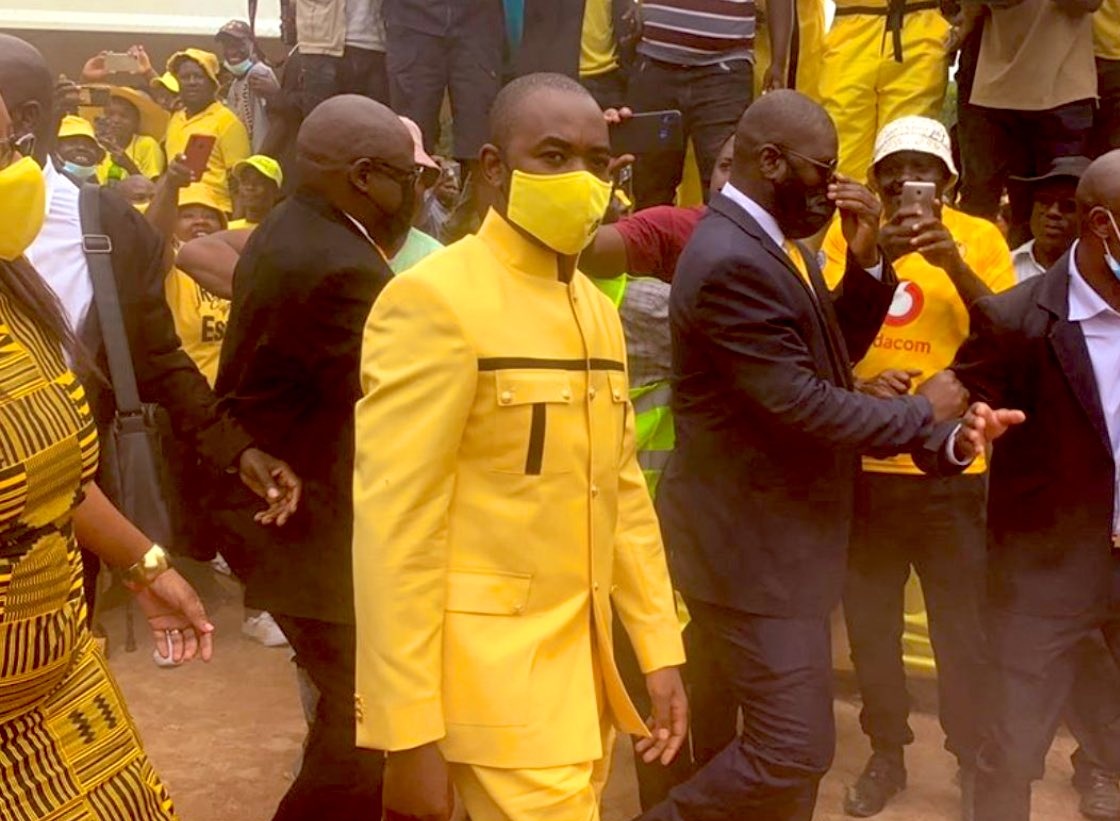
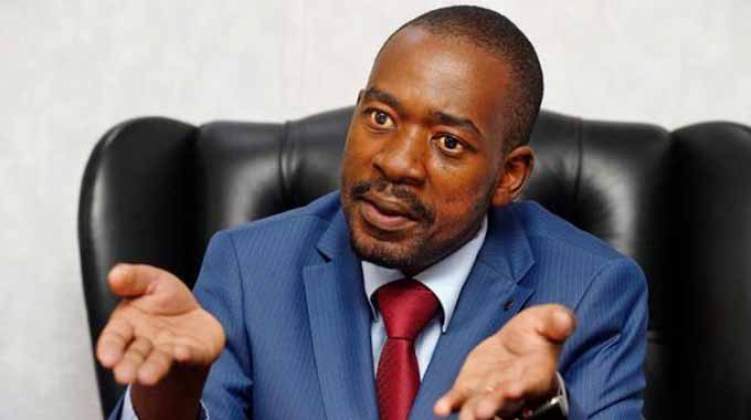
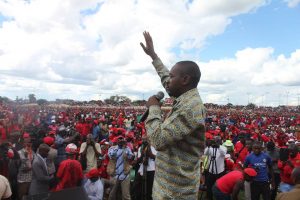
My brother Nelson Chamisa is an astute political scientist and a highly skilled orator with exceptional ability to speak in ways which capture the imaginations of a population that is in search of a political messiah. Yet, Chamisa might have now become the albatross hanging around the pro-democracy movement, and a potential stumbling block against progress towards the attainment of a genuine democratic change yearned by many in Zimbabwe. Less than 9 months towards the 2023 election, Nelson Chamisa is still running the CCC without any formal structures and without a constitution. The party is financially broke and does not have an organizationally driven fundraising strategy. He operates and runs the movement through unelected secret structures.
Members of his inner circle know that they serve at his pleasure and therefore they are unable to engage with him critically. In fact, they are so insecure in their positions that they feel that they must outshine each other to demonstrate their loyalty to Nelson.
There are no formally recognised national leadership positions, except his role as the President of CCC and those he has appointed into positions such as the party spokesperson and other functionaries. There are no internal procedures for decision making. He holds meetings with his lieutenants only when he wants. He makes party decisions without consulting anyone outside of his inner circle. Members of his inner circle know that they serve at his pleasure and therefore they are unable to engage with him critically. In fact, they are so insecure in their positions that they feel that they must outshine each other to demonstrate their loyalty to Nelson. Sometimes when they describe Nelson Chamisa, you may be excused if you confuse them for ZANU PF supporters describing their dear leader Emmerson Mnangagwa. This state of affairs undermines not only CCC’s prospects of winning the 2023 elections but prospects for a genuine substantive democratic change even if CCC wins the 2023 elections.
Undermining prospects of winning 2023 elections
Operating a party or a movement in this manner will only create and promote internal fissures, disgruntlement and demobilization as other leaders, at both the national and community levels feel that the party has become Chamisa’s personal fiefdom. CCC needs everyone to put their hands on deck to prepare for an election that is going to be held under very tough conditions in less than 9 months. Given the way Chamisa is running and leading the party, it will be very difficult to get everyone to put their hands on deck as some of the leaders, especially those who genuinely believe in democracy may have already started to take a back seat. It is not because these leaders do not aspire for political change or because they are selfishly seeking positions. They simply do not want to be used as “forks and knives” in what appears to be Chamisa’s personal kitchen where he single handedly decides what is on the menu. My good brother Nelson Chamisa often says “toda hugaro not zvigaro mantra” which loosely translates to “CCC is a movement which is not focused on creating positions for individuals but creating a vehicle to deliver change which will result in better livelihoods for all”. But what Nelson Chamisa forgets is that a political party or a movement is essentially an organisation. For any organisation to be effective, competent people must be appointed into various positions of responsibility. The manner in which those people are appointed must incorporate certain minimum democratic principles such as transparency, accountability, fairness, rationality and stakeholder consultation. It is not possible to achieve these without a clear constitution and formal structures adopted and endorsed by the membership through a democratic process.
Some have argued that Chamisa must single handedly appoint structures or avoid appointing structures in order to protect the party from infiltration by ZANU PF. These people have not cared to explain how the CCC can still remain a democratic movement when its structures, organs, leadership and internal rules are determined by one person or a clique. They have also ignored the fact that already Chamisa’s inner circle is heavily infiltrated by people whose history in and connection to ZANU PF is not a matter of guess work. Proposals have been made on ways of protecting the party from infiltration without undermining the democratic nature and outlook of the organisation. But these have deliberately been ignored because the clique that has captured Chamisa (possibly on behalf of ZANU PF) would like to retain control over the party. My brother Nelson Chamisa favors the status quo as it gives him the unrestrained leeway to organize and run the party the way he feels like and without anyone questioning him.

The doomed prospects for a genuine substantive democratic change even if CCC wins the 2023 elections
Without elected structures at national and local levels which hold the party leaders accountable and make collective decisions with the leaders, and without a constitution adopted by party members, the CCC is not a democratic collective. A coalition of people or organisations cannot be described as a democratic collective when all of them have been appointed by a single person and their rules of engagement are determined by one person and not in terms of a rules book that is adopted by the membership. This spells doom for genuine democratic change in Zimbabwe even if Chamisa were to win elections and take over from ZANU PF in 2023. He would have won the elections without a democratic collective, and it would be very difficult to expect him to be democratic as a head of government. A politician who obtains power through individual effort rather than a democratic collective effort is unlikely to respect and honor the significance of collective governance when inside government. Similarly, a politician who does not respect institutions when they are outside of government is unlikely to start doing so when they get into power. If Nelson Chamisa is not subjected to democratic collectivism and democratic accountability while outside of government, it is highly unlikely that he will accept to be subjected to those principles when he wields governmental power.
Fear and Denialism
Others argue that Chamisa is the best foot forward and therefore he must be supported blindly. But what if the best foot forward is broken?
Many are not prepared to critique Chamisa’s leadership style and political approach because doing so is quite risky in a two-party context and where the man is perceived by the large section of the masses as their political messiah. Those close to him in the party would rather suffer quietly because to speak out against Chamisa will surely result in one being shunted into the political dustbin. Several have already been pushed out of the cock pit. Some argue that criticizing Chamisa’s leadership style at this point and holding him accountable would undermine prospects for democratic change in 2023. The assumption made by those who argue like this is that there are prospects for a democratic political change in 2023, without addressing certain of Chamisa’s leadership deficiencies and stopping him from scoring own goals. Others argue that Chamisa is the best foot forward and therefore he must be supported blindly. But what if the best foot forward is broken? Will it still take you to your desired destination without fixing it? Others argue that all that is need is to defeat ZANU PF in the 2023 elections and then the rest of the issues can be sorted out. As I mentioned above, I do not think that a politician who does not respect democracy while outside of government will become a champion of democracy as a government leader.
–This article has been written by Justice Alfred Mavedzenge, in his personal capacity. He is a constitutional law academic committed to the building of democracy in Zimbabwe and Africa.






